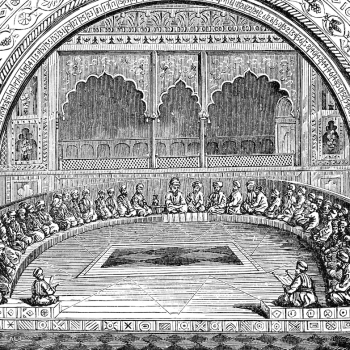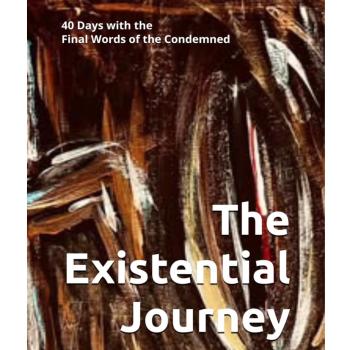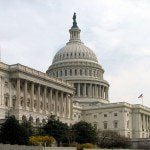With Easter just behind us, Christians have turned their attention to the narrative of Christ's resurrection, reflecting on themes of new creation, forgiveness, and redemption. It's worth remembering our original creation stories too, because only in their light can we fully appreciate the significance of Easter. The most prominent "origin" texts in Christian theology are found in Genesis 1-3. While they comprise two distinct perspectives on creation, together they are rich with theological insight into the meaning of creation, our human condition, and the God who brought it all into existence.
Genesis 1 is poetic cosmogony, presenting the 'six days' of creation along with the seventh as the day of God's rest. It is lofty and ethereal, cosmological and ordered, poetic in form. Genesis 2-3, the story of humanity's rise and fall at the central place in creation, is gritty and earthy and set in narrative form. (See William Brown's The Seven Pillars of Creation.)
Both texts assert the significance of human beings in God's creation, though in Genesis 1 they emerge at the end of creation on the sixth day (along with other animals), while in Genesis 2 they arrive first on the scene. Both narratives have profoundly influenced Christian theology and Christian understanding of origins: including the roles of God and the nature of God's interaction with creation. In what follows, I offer a small sampling of theological themes which, emerging from ongoing reflection on these texts, have deeply influenced Christian religious understanding—in particular as they relate to a theology of Easter.
1) Creation is very good, but not perfect.
In Genesis 1-3, creation is neither complete, harmless, nor tame. In creation, God brings order from disorder and beauty from chaos, through his Spirit, word, and wisdom. However, neither pain, suffering, nor danger is excluded from what God calls "good." Douglas John Hall, in God and Human Suffering, suggests the creation narratives make room for constructive forms of suffering: loneliness, limits, temptation, and anxiety. This is because "struggle is necessary to the human glory that is God's intention for us" (62).
The desire to provide an answer to the problem of evil and suffering sometimes tempts Christians to want to read Genesis 1-3 as laying the blame for natural suffering (and death) on original human sin. In so doing, they elevate the role of humanity's burden for what originally happened in the natural world to a height (or depth) the scriptures never accord them; it is worth pointing out, however, that humanity has greatly—and sometimes disastrously—impacted the modern, natural environment. The logic of Genesis 1-3 suggests that natural disasters are part and parcel of a dangerous but beautiful world. The recognition that creation is "very good," but not complete, provides motivation for human involvement in the preservation, cultivation, and ongoing care of the earth.
2) Human beings are significant, but sinful.
Human beings play a prominent role in both creation accounts. The "image of God," presented in Genesis 1, is concretized or grounded in Genesis 2. The adam, or "groundling"(note the play on words: adam springs from the adamah, the earth) is animated by the breath of God. The human being is created through a synthesis of divine breath and dirt. As one of my students recently noted, the creation of human beings from the ground raises a interesting question for anti-evolutionists: is it less dignified to have primitive, "ape-like" creatures as our ancestors or to be made from dirt?
In any case, as Brown notes, "humanity is unequivocally 'theomorphic' by design. Cast in God's image, women and men reflect and refract God's presence in the world" (42). Though made in the image and likeness of God and bequeathed the responsibility of caring for (having "dominion" over) the earth, the ish (man) and the isha (woman) assert their capacity as imago dei in the wrong direction. Tempted by the lure of power and knowledge, their reach exceeds their grasp. With respect to the important feminist critique of sin as pride-only, it is nonetheless important to suggest that original sin is the refusal to be what human beings were (and are) created to be (this refusal, or unwillingness, can have both 'masculine' and 'feminine' dimensions).
As an archetypal story, the fall is the story of all of us. The current theological message of the doctrine of original sin is more pressing (and frankly more interesting) than questions about its historical accuracy or textual development. Reinhold Niebuhr famously suggested that original sin is currently the only empirically verifiable theological reality: we only need to take a look around to confirm its truth. Sin is universal and ontologically inevitable. All humans are sinners by virtue of being human beings in community who inevitably find it impossible—apart from God's grace—to be anything other. While each of us is responsible for our own "Adamic fall" (Kierkegaard), certainly the original sin of the first human beings had dramatic, ongoing consequences.





